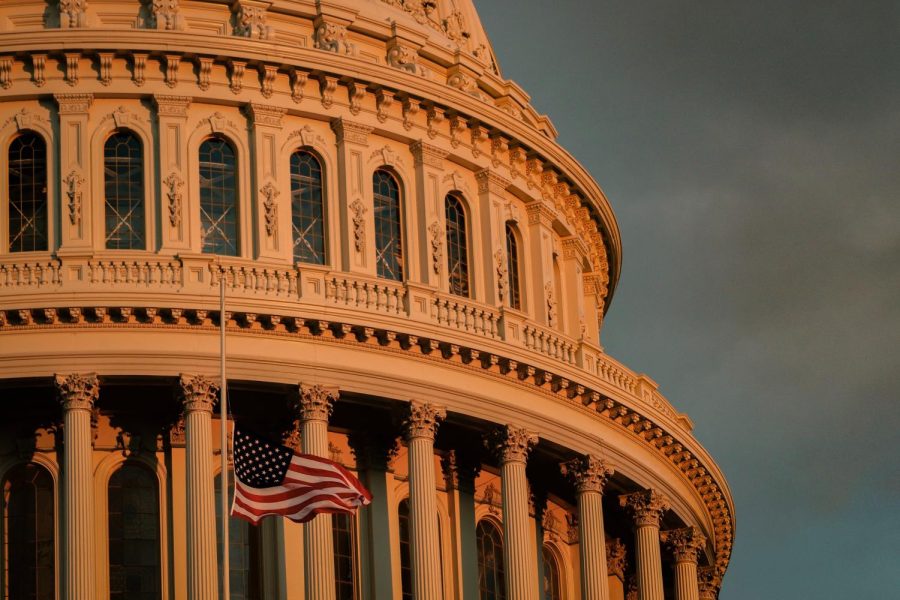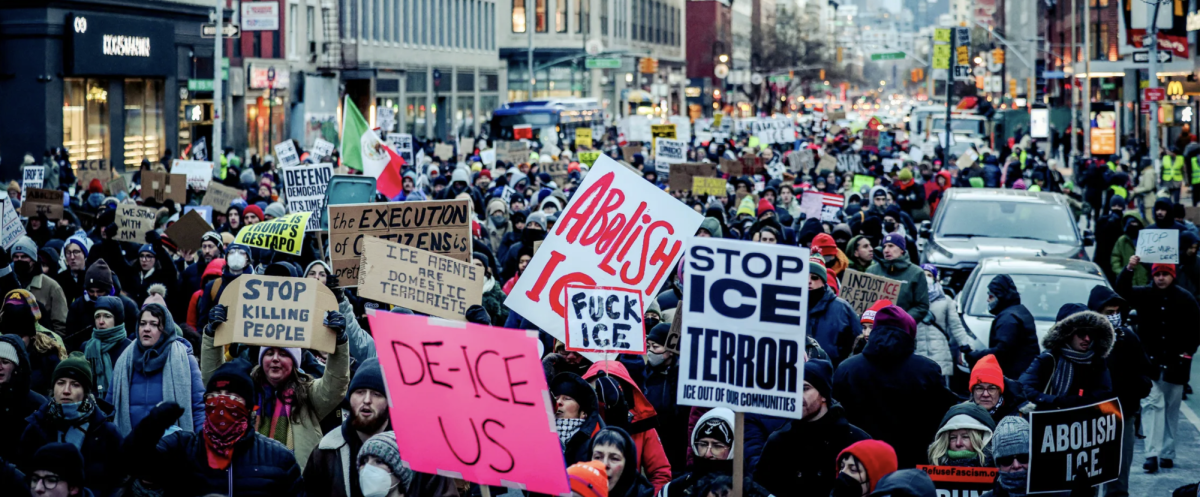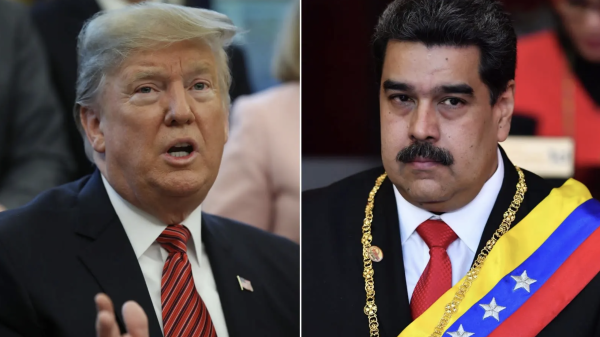The End of the American Empire
December 12, 2022
Great empires have always followed a cycle of prosperity and decline. From the Romans to the Mongols—once symbols of immense power, wealth, and influence—these bustling spheres of prosperity are now historical memory. The eventual end of vast polities seems inevitable, especially in the face of diverse economic and political interests. Is the American Empire an exception?
In 1950, President Truman deployed air and naval forces to Korea to repel northern Communist forces. Nearly half a century later, the U.S. invaded Afghanistan in an attempt to topple al-Qaeda in retaliation against the 9/11 attacks. And most recently, President Biden imposed sanctions on Iranian oil in an attempt to revive the 2015 Iran nuclear arms deal.
Though America’s ventures abroad may be veneered with the notion of guarding democracy and promoting global security, a growing number of scholars disagree. In fact, the post-WWII landscape of America is said to have been fraught with neocolonialist practices, with scholars such as Noam Chomsky characterizing U.S. foreign policy as exercising a form of global economic hegemony.
But regardless of whether or not the U.S. can formally be defined as an “empire,” one thing is clear: the age of modern Pax Americana is marching towards an end.
For one, domestic partisan animosity has nearly doubled since 1994, with growing political polarization eroding the foundations of American society. Alongside great polarization is gridlock in Congress, government inefficiency, and the emergence of political “sects” across the nation, with parties becoming increasingly aligned with certain racial and social groups.
“Under Biden and the radical Democrats, America has been mocked, derided, and brought to its knees, perhaps like never before,” stated former President Trump during the announcement of his 2024 presidential bid. Such bombastic, radical statements are fuel for Mr. Trump’s fired-up political base. A central talking point in his 2016 campaign, his demonization of critics and opponents has been instrumental in pitting his party against the Democrats and further polarizing the American public.
While the Trump campaign may be inundated with divisive messaging and outlandish sound bites, party-line politics did not have its genesis in a red MAGA hat.
American politics is oppositional by nature, and it is incorrect to paint former election cycles and eras in a patina of purity: Thomas Jefferson and Andrew Hamilton were not known for their polite political diplomacy; Andrew Jackson was not what most would call a particularly benevolent individual; and Abraham Lincoln served during one of the most polarizing times in our nation’s history. Clearly, the seeds of partisan politics have long been sowed, predating the Donkeys and the Elephants.
That said, there is something about the replacement of sound politics with a brand of chaotic sectarianism that is darker, more intense, and vastly different in nature than what we’ve seen in the past.
A uniquely dangerous force in 21st-century politics, political sectarianism adds magnificently to a preexisting culture of polarization. Interestingly, the term “sectarianism” has, historically, seldom been applied in describing political developments. Rather, its origins lie in detailing religious offshoots of larger groups, perhaps a testament to how in our polarized day and age, politics is religion, and religion is politics.
While religious adherence has been declining in America since the 1990s, the same fervor remains—instead, channeled toward political beliefs. This is unsurprising, considering that political parties offer many of the same characteristics as religious affiliation: a sense of belonging and moral certitude.
Yet, the casual juxtaposition of politics and religion spells danger to the republic. From Christian imagery at the January 6th Capitol riots to high-profile experts such as former Texas Governor and Energy Secretary Rick Perry describing Trump to be God’s “chosen one,” political religiosity is blinding judgment and logic, lending votes to be determined overwhelmingly on emotion and fervor.
Alongside a nearly religious adherence to political parties, the rapid shifting of the Overton window also jeopardizes the future of the American Empire. Named after political analyst Joseph Overton, the Overton window refers to the range of policies deemed acceptable, sensible, and popular to the electorate. While the window of discourse has remained largely stable throughout the past decades, 24-hour cable news and the rising popularity of radical candidates have dragged the window to the far-right and far-left.
A mass deportation policy was considered unthinkable before Trump’s far-right campaign. The notion of a thousand-mile border wall was unfathomable. Advocating for guaranteed housing was a far-left, socialist policy before Sanders popularized it in his 2020 presidential bid. In other words, the unacceptable, the ugly, and the unpopular have the power to transform into popular political talking points in a single news cycle.
While the rapid shifting of the Overton window may lend itself to the emergence of more progressive, innovative policy stances that shatter traditional standards, it can also lead to something much more dangerous: the normalization and eventual acceptance of outlandish, extremist stances.
Social psychology posits that our brains fuse what is “desirable” and conventional into a single view of normality. As the Overton window shifts further and further to the left and right, these views pollute our perception of what is normal and acceptable.
This normalization of intense partisanship and religious adherence to political sects is perilous. Multi-party systems were once envisioned to be a bulwark against the tyranny of the majority—a proud emblem of American democracy that proved the vitality of the democratic system. But today, hyperpartisanship and sectarianism have become political poison. Our only antidote lies in breaking out of echo chambers, stopping the envelopment of political figures in halos of purity and idolization, and stabilizing the movement of the Overton window.
The fall of Rome was largely accelerated by the Roman emperor Diocletian’s decision to split the empire along religious and political lines. If division and polarization are symptomatic of a falling empire, the United States is in great trouble.
And while the separation of a radically different West and East has yet to commence in America’s own twisted, modern re-enactment, the warnings are clear: division is death.




















